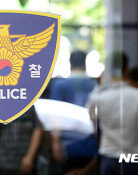Why does the parliament have proportional representatives?
Why does the parliament have proportional representatives?
Posted June. 16, 2016 07:30,
Updated June. 16, 2016 07:36
Rep. Kim Soo-min of the People's Party has been suspected of receiving illegal political funds from companies while promoting the party during the April 13 general elections. Lee Sang-don, the chairman of the People's Party's fact-finding committee, published its interim finding on Wednesday that there was no rebate scheme by stating, "There was no money influx into the party." The truth will be revealed when the prosecutors finishes their investigation. Apart from that case, Rep. Kim's qualification as a proportional representative candidate is also questionable. The 30-year-old politician has only one work experience: leading a venture company, and received the 7th candidacy. She did not even apply for the nomination, but her candidacy was already decided early in the morning of the day when the nomination result was announced, which is not normal.
Proportional representatives are usually to select people who can represent the socially disadvantaged or specialists to complement lack of expertise in lawmaking. The problem is that how to select them is not transparent, resulting in troubles like Rep. Kim's case. The Minjoo Party had an internal conflict during the last general elections because of the proportional representative nomination issue between Kim Jong-in, the chairman of Minjoo's emergency planning committee, and the pro-Roh Moo-hyun group, which is the majority of the party. The now-defunct Unified Progressive Party employed unlawful means for its proportional representative nomination, which caused a division within the party and eventually led to its dissolution. In the past, proportional representatives used to be the cradle of illegal nomination donation.
At the 20th National Assembly, some proportional representatives were chosen for their expertise but were assigned to entirely different fields. Justice Party Rep. Choo Hye-sun became a proportional representative for her experience working at a media-related non-government organization but was assigned to the Foreign Affairs and Unification Committee instead of the Science, ICT, Future Planning Committee, Broadcasting, and Communication Committee in charge of the media. Choo went into a sit-in demonstration for that. Rep. Choo is not the only one: Saenuri Party Rep. Kim Jong-suk, a management expert, was assigned to the foreign affairs committee; Saenuri Rep. Kim Seung-hee, former minister of Food and Drug Safety, was assigned to Security and Public Administration Committee; and Minjoo Rep. Lee Cheol-hee, who does not have any experience in national defense, was assigned to the National Defense Committee. As Rep. Choo Mi-ae noted that it is like putting a soccer on a baseball field, it is not only a comedy but also a waste of tax.
Proportional representatives are bound to be loyal to the party's chairman or leadership who literally "appointed" them. Some of them would try to gain favor with influential figures in the party in order to be nominated in their area for the next general elections, and others would go to extreme in order to show that they contributed to the party, ending up causing troubles. The opposition party held onto redistricting until 50 days before the general elections so that they could increase proportional representatives. If they cannot keep the nomination process fair and clear and let proportional representatives use their expertise, they might as well not have them at all.
이진녕 jinnyong@donga.com







